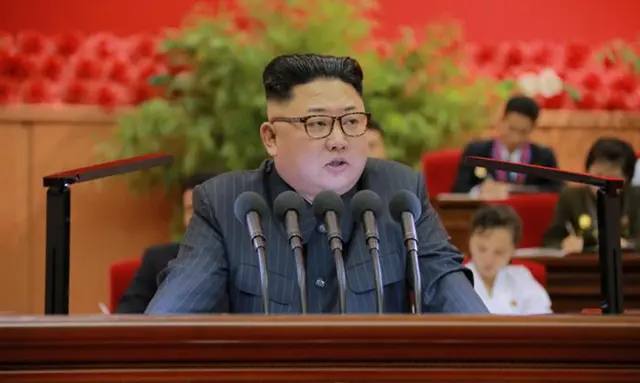DPRK is ready to conduct an additional nuclear test at any time, South Korea's Defence Ministry said on Monday, three days after the reclusive North's fifth test drew widespread condemnation.
Pyongyang set off its most powerful nuclear blast to date on Friday, saying it had mastered the ability to mount a warhead on a ballistic missile and ratcheting up a threat that its rivals and the United Nations have been powerless to contain.
"Assessment by South Korean and U.S. intelligence is that the North is always ready for an additional nuclear test in the Punggye-ri area," South Korean Defence Ministry spokesman Moon Sang-gyun told a news briefing.
Punggye-ri, near the northeastern coast, is the site of the North's five nuclear explosions.
"DPRK has a tunnel where it can conduct an additional nuclear test," Moon said.
South Korea's Yonhap News Agency reported earlier that DPRK had completed preparations for another nuclear test, citing South Korean government sources who said the North may use a previously unused tunnel at its mountainous test site.
It did not elaborate on what activities had been detected at the Punggye-ri nuclear test site.
DPRK’s Foreign Minister Ri Yong Ho, formerly the country's chief nuclear negotiator, arrived in Beijing on Monday and was seen entering the country's embassy, Japan's Kyodo news agency reported.
Ri left Pyongyang to attend a meeting of the Non-Aligned Movement countries in Venezuela and later the U.N. General Assembly, the Associated Press reported from Pyongyang without citing a source.
His trip comes amid a fresh push by the United States and South Korea for more sanctions following the nuclear test.
A U.S. special envoy for the isolated state, Sung Kim, will travel to Seoul on Monday. Kim met with Japanese officials on Sunday and said the United States may launch unilateral sanctions against DPRK, echoing comments by U.S. President Barack Obama on Friday in the wake of the test.
A push for further sanctions was "laughable", DPRK said on Sunday, vowing to continue to strengthen its nuclear power.
Yonhap reported that bad weather had delayed the flight of an advanced U.S. B-1B bomber to the Korean peninsula, a show of strength and solidarity with ally Seoul, scheduled for Monday. The flight from the U.S. base in Guam would now take place on Tuesday, a U.S. Forces in Korea official told Reuters, declining to identify the type of aircraft involved.
A defiant DPRK Sunday restated its demand for recognition as a "legitimate" nuclear-armed state, as world powers pondered ways to punish Pyongyang for its latest and largest atomic test.
The DPRK also vowed to increase its nuclear strike force "in quality and in quantity", two days after its fifth test in a decade sparked international condemnation and moves for tougher UN sanctions.
In Japan, a visiting senior US envoy said Washington and Tokyo were seeking "the strongest possible" measures in response.
DPRK insists that its missile and nuclear tests are necessary to counter what it says is a US nuclear threat to its independence.
A statement Sunday from a foreign ministry spokesman in Pyongyang mocked President Barack Obama's "totally bankrupt" policy on the country.
"Obama is trying hard to deny the DPRK's (DPRK's) strategic position as a legitimate nuclear weapons state but it is as foolish an act as trying to eclipse the sun with a palm," said the statement quoted by the official KCNA news agency.
Friday's test came only eight months after the previous one and was almost twice as powerful, at an estimated 10 kilotons.
Most worryingly for the international community, the North claimed it had been a miniaturised warhead that could be mounted on a missile.
The UN Security Council agreed Friday to start work on new measures -- even though five sets of UN sanctions since the first nuclear test in 2006 have failed to halt the North's nuclear drive.
Sung Kim, the US State Department's special representative for DPRK policy, said Washington and Tokyo would work closely in the Security Council and beyond "to come up with the strongest possible measure against DPRK's latest action".
(REUTERS/AFP)
 简体中文
简体中文



